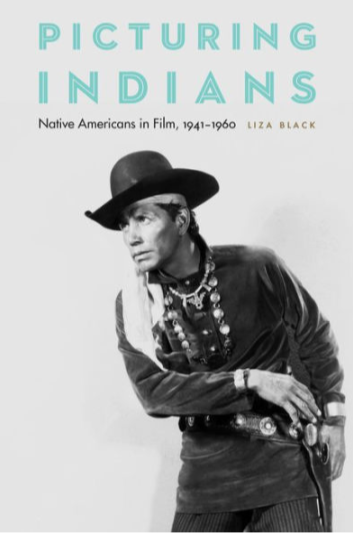Postcolonial Theory and Its Benefits for Society
The past and ongoing historic processes present invaluable information for future generations allowing them to navigate the world without repeating the mistakes of their ancestors. The combination of such processes is considered under a unified concept of postcolonial theory, which contributes to the knowledge about various population groups. Postcolonial theory as a field focused on the analysis of the cultural legacy of colonialism, which considers differences between colonizers and colonized (Juan, 2016). It applies to all areas of research, such as philosophy, cinema, or religious studies. However, one of the most apparent applications of postcolonial theory is literature as it provides extensive information on various aspects of colonization.
The importance of this field of knowledge is conditional upon the benefits it provides for researchers engaged in the areas allowing to predict the future of humankind. They include economic, political, and social aspects of life in the present-day world (Juan, 2016). Indeed, postcolonial theory is a powerful technique when applied to problems related to an unknown future. With the help of it, scholars attempt to reveal the differences in approaches of various population groups to specific challenges to understand the best way of addressing arising issues.
The emergence of postcolonial theory is closely related to the ideas of scholars studying the processes of colonization and their impact on society. The most significant contribution to this sphere was made by Frantz Fanon and Edward Said, who were the first researchers in the field (Dizayi, 2016). The main areas that adopted the theory were sociopolitical and literary studies that failed to explore the mechanism of colonization and the impact on both colonizers and colonized with the help of previously existing techniques (Dizayi, 2016). Hence, the development of postcolonial theory significantly contributed to the reinforcement of knowledge on societal processes through their analysis.
Reflection
One of the most critical aspects of processes in society is the way values are transmitted between colonizers and colonized and how they become universal. The task to track them seems to be even more challenging than defining the knowledge exchanged by members of various population groups. It requires consideration of a range of aspects and raises numerous issues. Who or what defines which values should be viewed as universal and appropriate to different peoples? How are such values reflected in the life of our society? How are the values of American Indians and African Americans, together with the values of Europeans, are blended into what we can call “American values”? Only their thorough examination and comparison would allow scholars to find a solution to this problem in the future.
However, such a diversity of values and their practical implementation lead to the emergence of many issues in American society, which remain unsolved to date, and racial discrimination is the most important one. The process of colonization of the continent was accompanied by the mixing of cultures, and it is not a linear process, which can be easily traced. The complexity of this process is defined by the involvement of more than two races. Hence, African Americans, American Indians, and Europeans contributed to the creation of present-day society its views. However, despite the proclaimed American values such as equality and independence, it is clear that they are not respected by all citizens.
This situation made me wonder why people do not confront the underlying values of our society. Can it be due to a conflict of one’s identity and inability to find a place in life? Does it indicate that we still experience the uncontrollable fear of anyone different from us that guided our ancestors in the opening of a new continent? I feel that there should be some solid reasons for such a situation, and its roots are in the history of our country.
I am not alone in thinking that the United States faces apparent issues regarding respect for universal values as my friends support this position as well. I remember once my friend and I decided to apply for a job at the same company in the summer. However, we did not get it and received no explanation either, but I had a feeling that the real reason for it was my friend’s racial identity. Such situations are quite common, and no one explicitly states the motives for their decisions, but it does not mean that the people involved do not get an intuitive sense of them. Therefore, I believe that in a society, which developed with the inclusion of various races, the so-called universal values should apply to all of its members.
Application
For my application of postcolonial theory, I chose literary works as they suit my objective best due to the extensive information they provide on the historical precondition of racial discrimination. They are related to African American and American Indian struggles arising from the neglect of universal values and the selective application of thereof to the citizens of the United States. The postcolonial literature, as a source of information, typically implies the works of authors “living in countries formerly colonized by other nations” (Brians, 2016). Therefore, the books of people living in the United States would be excellent examples proving the idea of non-observance of universal values.

The first literary work is “I’m still here: Black dignity in a world made for whiteness” by Austin Channing Brown. It is an autobiographical novel of a woman who faced discrimination, and it defined her views regarding the injustice of present-day society. Austin claims that such values as equality and diversity promoted by such social institutions as schools and businesses are not observed in reality (Brown, 2018). This fact defines the emergence of racial discrimination and the impossibility to consider this issue without regard to corresponding universal values. African American citizens even have to give their female children names resembling the ones of white men to increase their chances for employment as it happened to the author (Brown, 2018). It proves that the roots of discrimination are in the lack of respect for values.

Another example of postcolonial literary works is the book “Picturing Indians: Native Americans in film,” written by Liza Black. It contains the perceptions of this population group by film directors and actors that also emerged as a result of the absence of respect for universal values and, consequently, discrimination (Black, 2020). Such a conclusion is supported with the help of authentic historical materials required for the accuracy of the image of American Indians throughout history and their portrayal in films. The postcolonial-themed message of the book is similar to the one of Austin Channing Brown, which is the impossibility to eliminate racial discrimination without removing its underlying cause. In this way, it can be concluded that discrimination is a complex problem, the solution of which solely depends on the successful assimilation of universal values that shape the nation.
References
Black, L. (2020). Picturing Indians: Native Americans in film. Nebraska.
Brians, P. (2016). “Postcolonial literature: Problems with the term.” Washington State University. Web.
Brown, A.C. (2018). I’m still here: Black dignity in a world made for whiteness. The Crown Publishing Group.
Dizayi, S. A. (2019). Locating identity crisis in postcolonial theory: Fanon and Said. Journal of Advanced Research in Social Sciences, 2(1), 79-86. Web.
Juan, E.S., Jr. (2016). Beyond postcolonial theory. Springer.